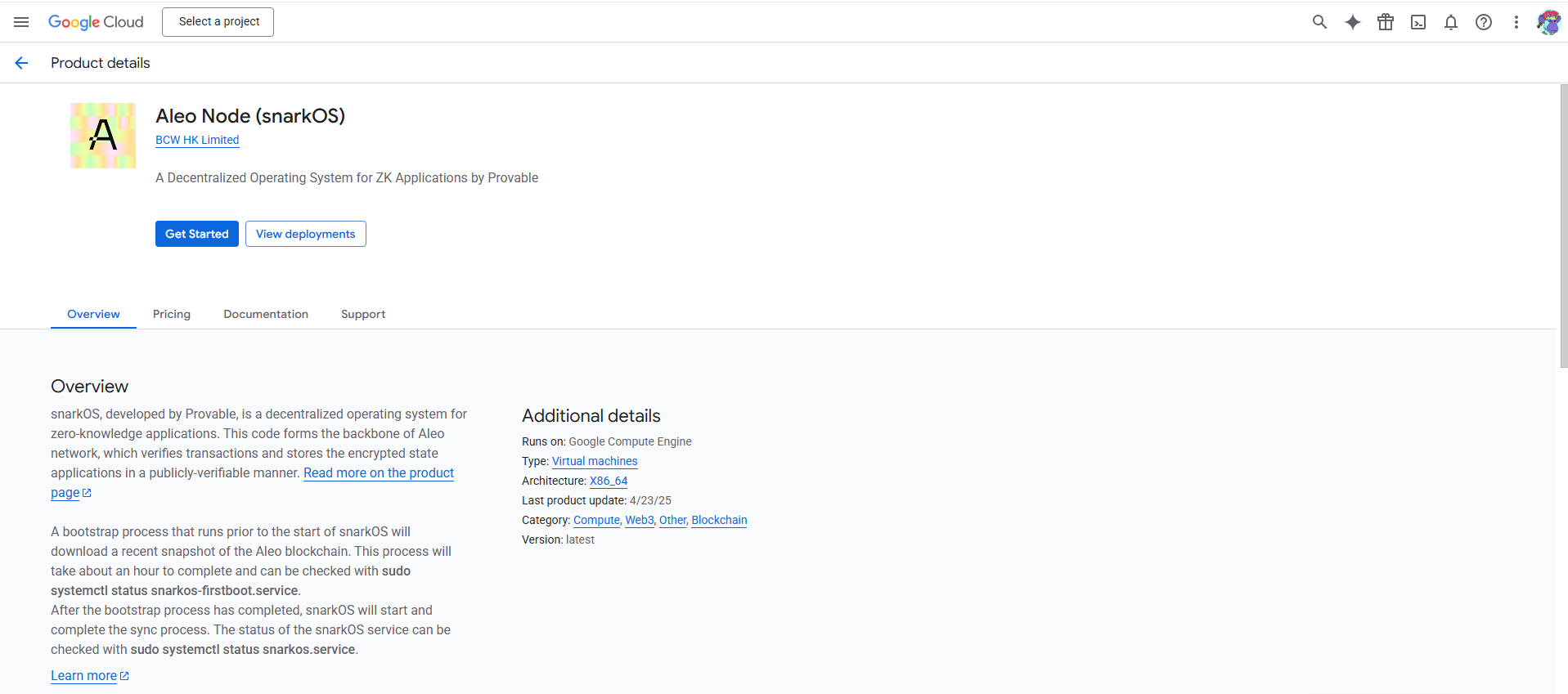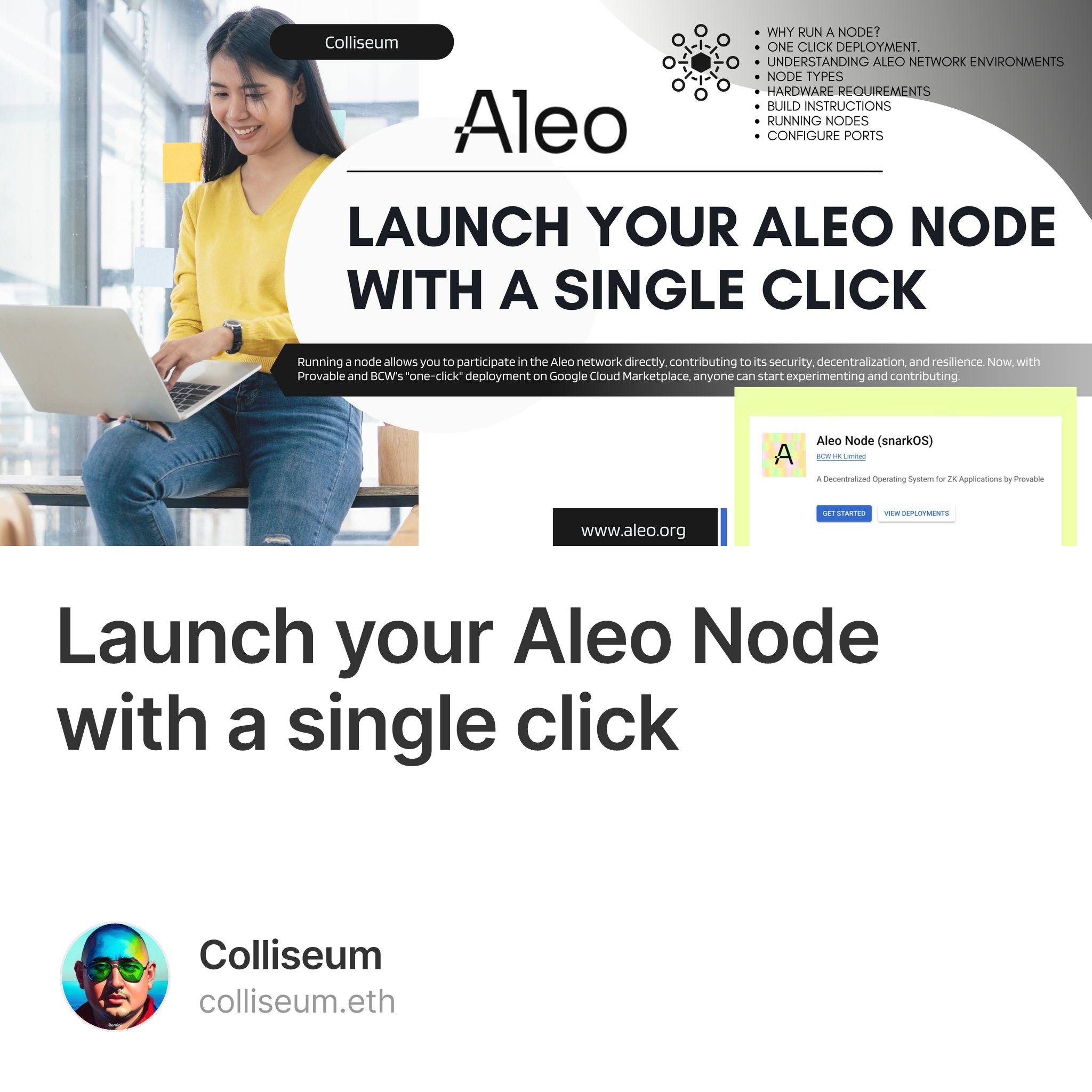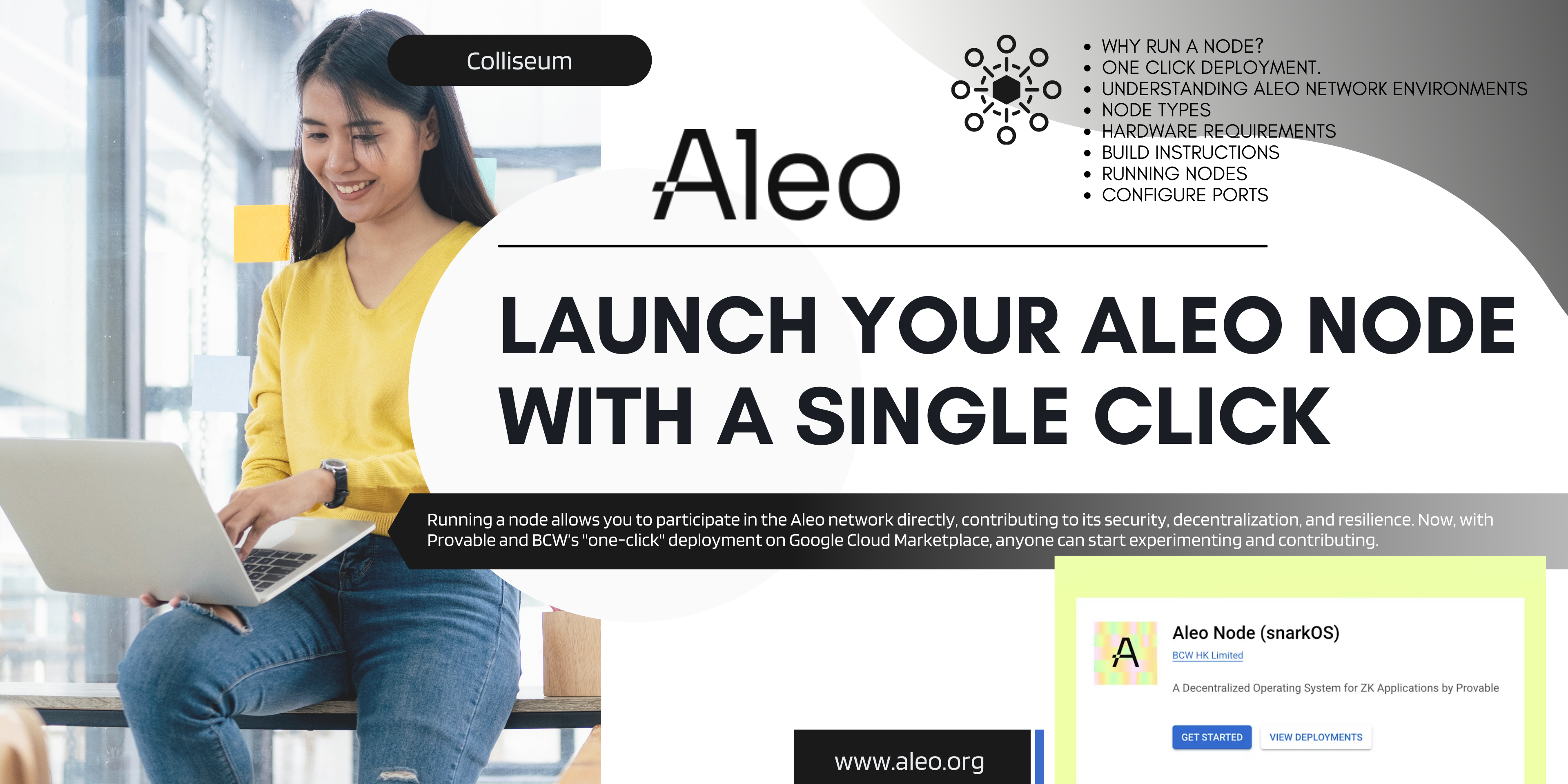My name is Heorhii, and in this guide, I’ll walk you through launching your own Aleo node in the easiest way possible. Running a node allows you to participate in the Aleo network directly, contributing to its security, decentralization, and resilience. Now, with Provable and BCW’s "one-click" deployment on Google Cloud Marketplace, anyone can start experimenting and contributing: no deep expertise required.
Why run a node? Launching your own Aleo node lets you:
-
Support the decentralized infrastructure
-
Gain sovereignty over your network interactions
-
Access the Aleo REST API for development
-
Experiment with zero-knowledge applications directly
One click deployment. You can now launch a snarkOS node directly from the Google Cloud Marketplace. This node includes REST API access and is compatible with CanaryNet, Testnet Beta, and Mainnet Beta.

When the node starts, it automatically downloads a fresh snapshot of the Aleo blockchain, helping you sync faster and be ready to explore in about an hour.
This is ideal for developers, researchers, and builders who want to experiment, test applications, or contribute to the network without spending hours on setup.
Start your journey now by visiting the Google Cloud Marketplace and launching your Aleo node instantly:
More info you can find here:
**
Aleo network environments. **Just for reminding, Aleo has four network environments:
-
1. DevNet: Previously maintained by Aleo core teams. Now run by community developers for PR testing.
-
2. CanaryNet: Semi-open environment for realistic simulations. Changes from staging are validated here before Testnet/Mainnet.
-
3. Testnet Beta: Public network for extensive application and validator testing. Operated by the Aleo Foundation and trusted partners.
-
4. Mainnet Beta: The final testing ground before production. Initially closed, will be open and decentralized at launch.
Node types. There are multiple types of snarkOS nodes you can deploy:
-
Validator. Participates in consensus
-
Core Client. Communicates directly with validators
-
Outer Client. Communicates only with peers
-
Prover. Dedicated to solving Aleo puzzles
Hardware requirements:
-
Clients: CPU: 24+ cores. RAM: 128GiB (192 preferred). Disk: 2TB NVMe SSD (4TB preferred)
-
Validators: CPU: 64+ cores. RAM: 256GiB (384 preferred). Disk: 4TB NVMe SSD (6TB preferred)
-
Network: Symmetric 250-500Mbps up/down
Build instructions:
- Clone snarkOS:
git clone --branch mainnet --single-branch https://github.com/ProvableHQ/snarkOS.git
cd snarkOS
git checkout tags/testnet-beta
- For Ubuntu:
./build_ubuntu.sh
- Install snarkOS:
cargo install --locked --path .
Running nodes:
- Core Client Example:
snarkos start --client --nodisplay --node 0.0.0.0:4130 --peers "<validator_ip>:4130,..." --verbosity 1 --norest
- Outer Client Example:
snarkos start --client --nodisplay --node 0.0.0.0:4130 --peers "<peer_list>" --verbosity 1 --rest 0.0.0.0:3030
- Validator Example:
snarkos start --validator --nodisplay --bft 0.0.0.0:5000 --node 0.0.0.0:4130 --peers "..." --validators "..." --verbosity 1 --norest --private-key-file ~/snarkOS/privatekey
- Prover Example:
./run-prover.sh
Enable CUDA acceleration:
./run-prover.sh --cuda
Configure ports. Make sure to open TCP ports: 4130, 3030, 5000, 9000, and 9090 as needed, based on your node type.
More info you can find here:
Conclusion. Launching an Aleo node has never been easier. Whether you're testing dApps, validating new features, or proving ZK circuits, this streamlined setup brings the power of snarkOS to your fingertips.
Start your node today and join Aleo’s path to a fully private, decentralized future.
To know more about Aleo, join now!
Aleo Twitter
Aleo Discord
Aleo Website
List of Aleo and Leo code and resourses
Prepared by Colliseum

